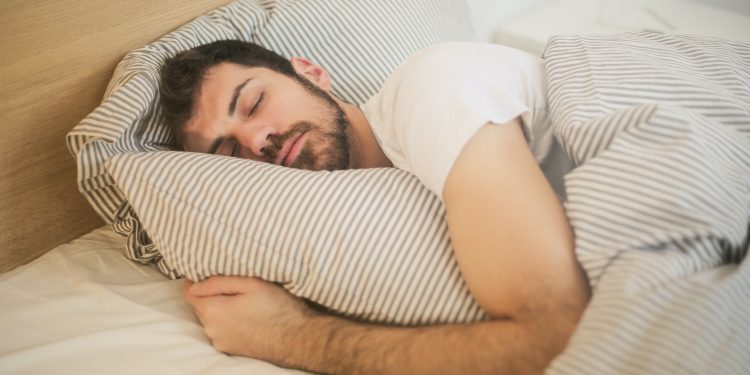You’re exhausted after a long day of work, so you finish up your nightly routine and drag yourself over to your bed. Shutting away the thoughts of work and the pandemic, you carefully tuck yourself in—certain you’ll soon fall into a deep slumber. Over an hour later, though, you’re still tossing and turning, your weary body unable to fall asleep.
To say that falling asleep is elaborate is an understatement, as it’s incredibly more complex than that. Tossing and turning at night can be incredibly frustrating, leading you to find desperate ways like reading the dictionary, only to waste another hour.
With frustrating and stress building up, you’re wondering if falling asleep can get better for you. The good news is that you can—here’s how:
1 – Commit to consistent bed and wake times
It may be tempting to pull an all-nighter for yet another one of your essays or clients, pushing your sleep off into the wee hours of the morning. Naps can make up for it, you think, as you settle into your desk at 11 PM at night. Unfortunately, this is counterproductive.
Your body needs to recognize a pattern it can follow, so come up with a sleep schedule. This will help you get into a steady routine that lets your body know you’re due for a good night’s rest. The weekend is no exception—binging on Netflix may be the best way to spend your Friday night, but that will only ruin your current routine. Discipline is the key to better sleep!
2 – Exercise during the day
Science has always regarded exercise highly, and for a good reason. Not only is it good for your overall health and well-being, but it also encourages your body to sleep. Even as simple as a 15-minute routine can help you out, helping you ease into a much-needed slumber.
Keep in mind that any physical activity close to your bedtime may keep you awake, so make sure to get exercise within the day, particularly in the morning. Exercise causes your body to produce cortisol and endorphins, which make your brain more active.
3 – Try some bedtime stretching
Although another exercise-related technique, try bedtime stretching. Vigorous workouts may keep you up past your intended bedtime, but gentle exercises can help you relax. Grab your yoga mat and engage in breathing and stretches, helping your body induce that relaxation you need before bedtime.
With a calm mind and an equally calm body, sleep will find you better. For a better relaxing practice, look into mindfulness and grounding.
4 – Create a sleep-conducive environment
Light plays a crucial role in your circadian rhythm, so make sure to stop scrolling through your mobile devices an hour before your bedtime. Make sure to turn off your lamps and other light sources, as a dark environment helps you fall asleep faster.
Temperature also plays a role, so make sure to regulate the temperature in your room. Make sure it’s the perfect balance between hot and cold, but if you can’t regulate your room’s temperature, consider getting better beddings and pajama sets.
Your type of pillows and mattresses also play a critical role in your sleep, so invest in pieces that last. A springy mattress may be cheap, but beds like Sleep Number have been designed to help you the best sleep possible.
Enjoying A Good Night’s Rest
These unprecedented times may be difficult, and sleeping can be rather difficult to come by. Stress is challenging to deal with, and with so much to think about, getting a good night’s rest almost seems impossible. With the right tips, however, you’ll be able to fall asleep faster—just remain consistent, exercise, stretch, and bask in a sleep-friendly environment!
If you’re on the hunt for good beds, we’re here to help you out! We offer you the fresh and latest reviews and recommendations about Sleep Number beds in the USA, along with Sleep Number bed alternatives. Adjustable beds are the future, so why not invest in them now? Allow us to help you decide—browse through our content today!


